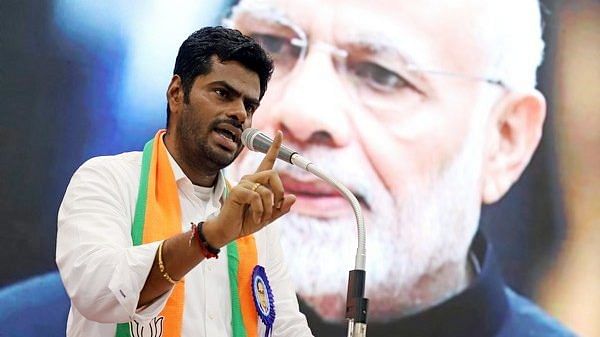prasad1
Active member
In a recent statement, Tamil Nadu BJP president K Annamalai spoke out against the discrimination faced by Brahmins in the state. He stands with a community that, in his words, has been unjustly “hounded and threatened” for decades, drawing a parallel to the persecution of Jews in Germany during World War II. Such loaded words underscore the depth of the social divide and animosity that has taken root in Tamil Nadu society.
But, more importantly, Annamalai’s statement opens up the space for a dialogue that the state must engage in.
The statement sheds light on the need for addressing hatred against the Brahmins in Tamil Nadu, though he grossly overstates the scenario as similar to the Jews’ plight — a dramatic hyperbole that risks trivialising the latter. The Dravidian movement of the early 20th century, which Annamalai blamed for trying to drive out Brahmins, was a socio-political and cultural movement that challenged caste supremacy and advocated for the rights of marginalised communities. It was started to tackle the domination of Brahmins in education, jobs, and the public sphere. This movement indeed shaped modern Tamil Nadu — and scarred society in its wake. It created a permanent binary between the Brahmins and non-Brahmins in the state.
Beneath the rhetoric, there is a genuine issue at hand – the undeniable presence of caste-based conflict, contradictions, suspicion, and hatred in Tamil society. We must address this through sincere dialogues, mutual respect, and shared efforts toward reconciliation and unity.
The history of various communities in Tamil Nadu is riddled with bitter memories. The oppressed castes have their own stories of discrimination and exclusion by the Brahmins. On the other part of the spectrum are the stories of Brahmin victimhood and hatred as a result of the Dravidian movement. But can we, as a society, move forward while holding onto the events of the past?
Joseph Ernest Renan, Nelson Mandela, and Martin Luther King Jr show the way forward.

 theprint.in
theprint.in
But, more importantly, Annamalai’s statement opens up the space for a dialogue that the state must engage in.
The statement sheds light on the need for addressing hatred against the Brahmins in Tamil Nadu, though he grossly overstates the scenario as similar to the Jews’ plight — a dramatic hyperbole that risks trivialising the latter. The Dravidian movement of the early 20th century, which Annamalai blamed for trying to drive out Brahmins, was a socio-political and cultural movement that challenged caste supremacy and advocated for the rights of marginalised communities. It was started to tackle the domination of Brahmins in education, jobs, and the public sphere. This movement indeed shaped modern Tamil Nadu — and scarred society in its wake. It created a permanent binary between the Brahmins and non-Brahmins in the state.
Beneath the rhetoric, there is a genuine issue at hand – the undeniable presence of caste-based conflict, contradictions, suspicion, and hatred in Tamil society. We must address this through sincere dialogues, mutual respect, and shared efforts toward reconciliation and unity.
The history of various communities in Tamil Nadu is riddled with bitter memories. The oppressed castes have their own stories of discrimination and exclusion by the Brahmins. On the other part of the spectrum are the stories of Brahmin victimhood and hatred as a result of the Dravidian movement. But can we, as a society, move forward while holding onto the events of the past?
Joseph Ernest Renan, Nelson Mandela, and Martin Luther King Jr show the way forward.

Annamalai statement on Brahmins opened much-needed dialogue for Tamil Nadu—Lay the past to rest
Beneath the rhetoric, there's a genuine issue–caste-based conflict and hatred in Tamil society. Martin Luther King Jr, Mandela, and Renan show the way forward.
 theprint.in
theprint.in
